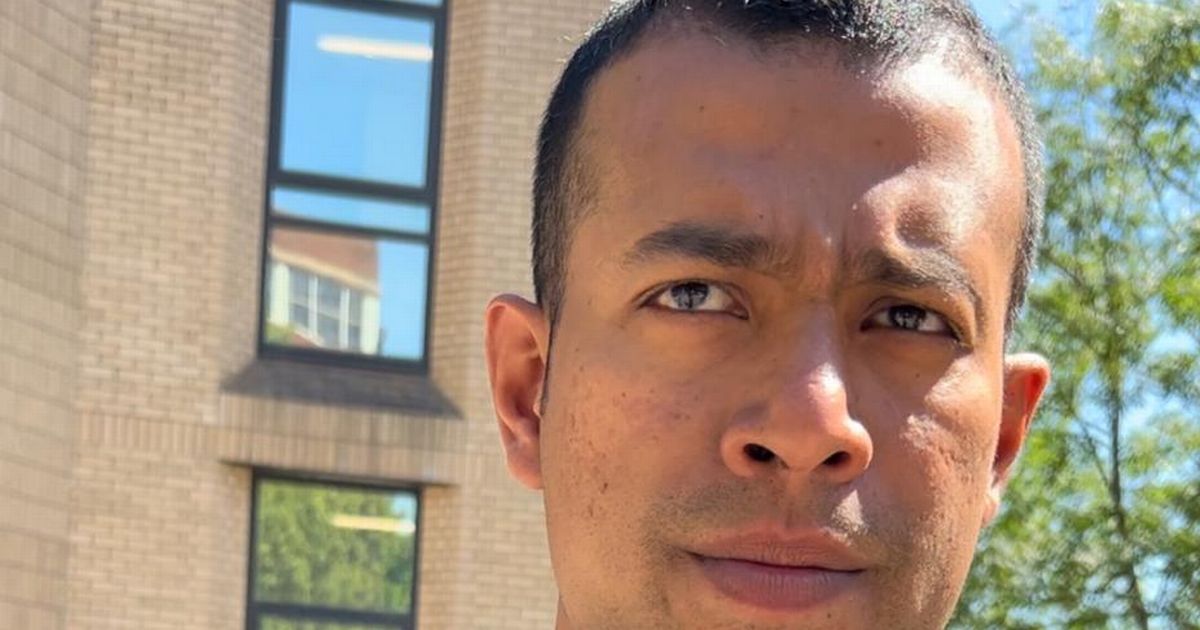A fraudster tried to con shops into giving him iPhones by using the details of real customers. Md Rahman, who was serving a prison sentence for the scam, was caught again at an O2 store in Wales — but the asylum seeker claimed he was forced into the crimes by a gang he borrowed money from.
The 35-year-old from Bangladesh avoided jail when he was sentenced at Cardiff Crown Court last week for the most recent offence, which took place in January 2022. Prosecutor Eurgain Lloyd said: “He entered the O2 store in Caroline Street, Bridgend, and attempted to upgrade a phone plan and choose a new iPhone. He chose an iPhone 13 Pro worth £1,055. However, suspicions arose when he gave an incorrect postcode.
“O2 has released knowledge of a scam where someone is fraudulently using existing customers’ details during the application process [for a contract upgrade and new phone], which is what happened in this case. He became confused and the staff called the police. The defendant had been linked to several previous frauds involving O2 stores.”
READ ALSO: Cardiff City footballer issues statement after homophobic tirade against police officer
DO NOT MISS IT: Man Caught On Phone While Driving To Work, Then Gets Furious At Police In ‘PC Plonker’ Tirade
Ms Lloyd added that Rahman had been involved in similar activities since 2020. “He admitted to the fraud but stated he was under duress and worked for two other men,” she said. “However, there is no evidence for this. The suspect admits that he was the one who visited the stores and committed the fraud.”
The court heard that Rahman, of Lloyd Road in East Ham, London, had previously been convicted of fraud, which also involved “going to mobile phone shops and making contracts with false details”, and resulted in a 10-week prison sentence. His criminal record also included an offense of failing to report to prison, which led to a 15-week prison sentence.
Speaking about the latest scam, Rahman’s lawyer Eve Hayes said: “He pleaded guilty at the earliest opportunity. He is a single, unemployed man. He came to Britain legally on a student visa from Bangladesh and went to study law at University of London, but did not complete the course. He tried to enrol on another course but because he had not completed the previous course, no one would enrol him. His visa was cancelled but he was unable to return home due to a change in status in his home country, Bangladesh.”
Rahman has filed an asylum claim which is yet to be assessed. Ms Hayes said her client “got into the wrong business” after his father died in Bangladesh and his uncle laid claim to his parents’ land. “He was told he had to pay £15,000 for his mother to keep her house,” Ms Hayes told the court. “He borrowed the money from a gang who were demanding £5,000 a year in interest. He was doing manual work but he couldn’t pay the money back. He was initially pressured into committing fraud. However, he went along with it and admitted to the offence.”
The court then heard from a probation officer who had interviewed Rahman. The official said: “When he was unable to pay back the gang’s money, he was asked to deliver several packages that he believed were drugs. After refusing several of these offers, he stated that he instead went to the phone stores. He says he did this for several years after the gang threatened him and his family members. As for his previous conviction, it was the same people who made him do this.
“He lives in a property owned by his uncle. Because of his immigration status he has no access to public funds, so he receives just £60 a week from an immigration agency in London. He has asthma, anxiety and depression, and he has marked deficits in consistent thinking.” The probation officer added that he had assessed Rahman as a “medium risk” of financial harm to shop owners. But he said a prison sentence would mean less support for Rahman and instead recommended a community order to help improve his “thinking skills”.
Presiding Judge Cheryl Bowen imposed a 12-month community order with 15 rehabilitation days and 200 hours of unpaid work. She told Rahman: “I’m not going to give you a fine because of what I’ve heard about the lack of funding, and we think the punitive element is in the unpaid work.”
After the conviction, Rahman told WalesOnline that he no longer received threats from the gang. “The thing is, I’m a victim. Since I started, I had no intention of doing that, but because of that loan, I did it. Because I got threats from them.” Asked the total number of phones he had fraudulently obtained, he replied: “I don’t remember.” He added that he regretted his actions.
